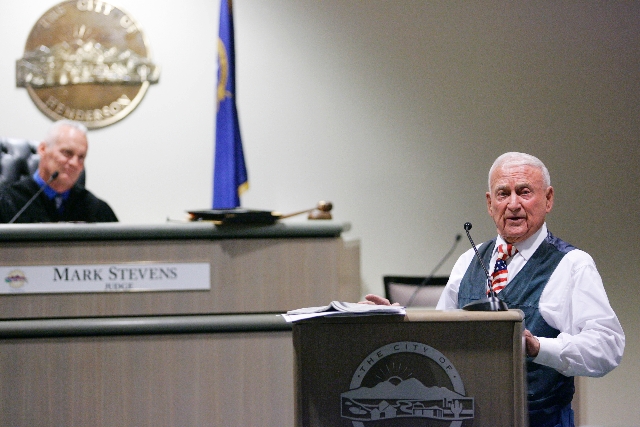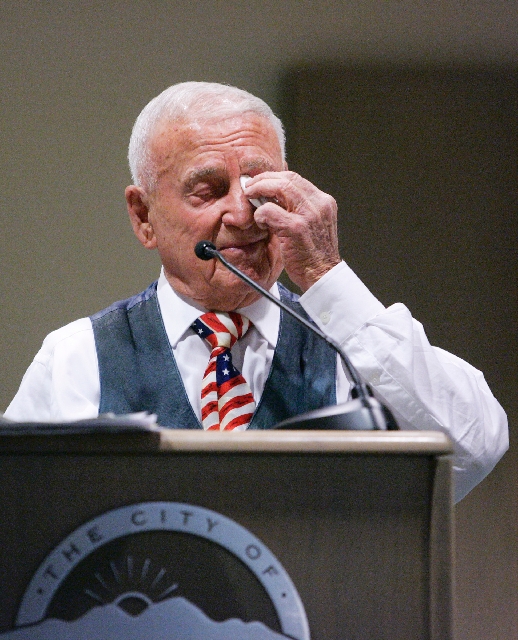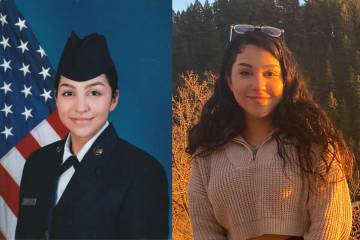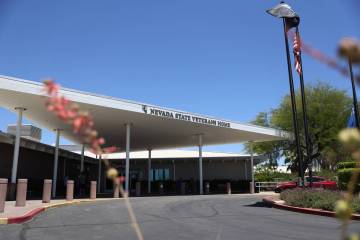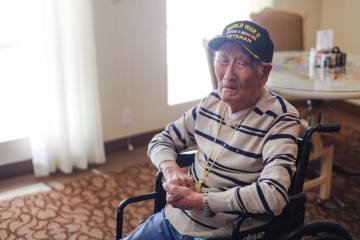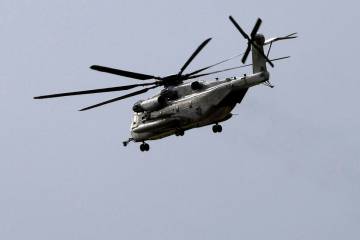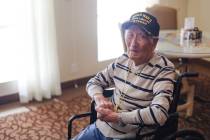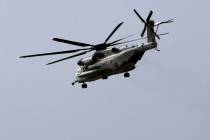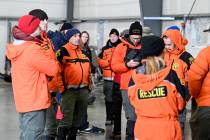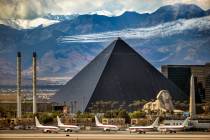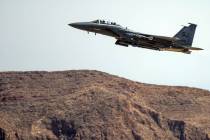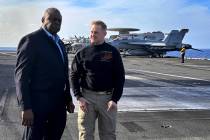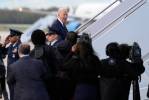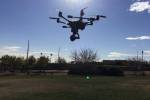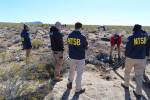Veterans Court participants hear stories of Flying Tigers
Almost every bombing mission Jack Schofield flew in World War II was a mission of opportunity.
“Anything ‘enemy’ we had a license to kill, a license to destroy. That was our mission: Destroy the enemy,” the 89-year-old former Army Air Force pilot said in his speech to veterans last week who graduated from Judge Mark Stevens’ Henderson Veterans Court.
“You’d like to say that’s pretty hard, a hard thing to visualize that people want to destroy and kill,” he said.
“But, my heavens, the Japanese had done their best to undercut us and do their dirty deed at Pearl Harbor.
“They just wanted to slaughter us. They were heartless, and it made you angry inside, like you wanted to kill back,” he said.
“I’m a Christian and I know that I’m not supposed to feel that way, but you couldn’t help it when you read about the atrocities.”
Much like the opportunities Schofield encountered in the 44 missions he flew during the China-Burma-India campaign, including four flights that took him over “the Hump” — the towering Himalayas — the three graduates Thursday were given opportunities for a second chance to erase misdemeanor penalties by completing courses with veteran mentors.
Their reward was an opportunity to hear Schofield’s hourlong war story. It was as much a lesson in life as it was a chapter in military history.
Schofield, a Golden Gloves boxer who married his wife of 71 years, Alene, at age 18, has an eye-popping list of accomplishments that he achieved in Las Vegas after the war.
He holds a doctorate from the University of Nevada, Las Vegas in educational administration and higher education; taught at many local schools and has a middle school named for him; served on the town board for 17 years; and was a state assemblyman and state senator in the 1970s.
After he turns 90 on April 25, he wants to earn a law degree and practice until he’s 100 because, he says, he’ll be too young to retire at 91.
Of all the things he’s done in life, his biggest accomplishment wasn’t his teaching or political career or dodging anti-aircraft fire that Japanese soldiers and sympathizers shot at his B-25H Mitchell bomber.
Instead, it’s “my 59 great-grandchildren, 34 grandchildren, and six children. My wife is the most genuine human being I’ve ever met,” Schofield said, moments after he sang “You Are So Beautiful To Me” for the court, a song he sings every day to Alene.
Because of his love for his descendants, he says he carries no animosity for the descendants of the enemy he fought and who tried to kill him in World War II.
“I look at the Japanese people today,” he said. “Like on this tsunami that happened and the wonderful, beautiful cars and the technologies that they’re doing. How can you be angry with those people?
“They weren’t the ones. It was the ones living at that time that were doing all those horrible things,” Schofield said. “Those were the ones we were angry with, but I’m not angry with their children, or their grandchildren, or children’s children.”
Schofield graduated from Las Vegas High School in 1941, enlisted in the Army in Salt Lake City in October 1942, was called to active duty in April 1943, and “put on the (pilot) wings” on June 27, 1944, in New Mexico.
From there his odyssey began. He trained in Utah, California and Texas, hoping to be a twin-engine P-38 Lighting fighter pilot.
But then he switched gears to be a B-25 bomber pilot thinking it would be “more glamorous to go to China and be a Flying Tiger.”
In February 1945, the 14th Air Force Flying Tigers fighter planes under Maj. Gen. Claire Chennault were being integrated with new B-25H Mitchell bombers, a “wicked machine” with cannon for the pilot and .50-caliber machine guns for the crew.
Schofield’s assignment was to ferry one of the planes from South Carolina to South America, across the Atlantic to Africa and on to India and China.
“We flew over the Hump at 18,000 feet, and dropped down to Kunming, China. That’s where I met General Chennault,” he said, describing the general as a mean-looking guy. “We had to have tough people to win World War II.”
In a year’s span, Schofield flew 44 missions, mostly in China. But the scariest one was looking for Japanese vessels and bridges to attack around Hainan Island and French Indo China, now known as Vietnam.
Another veteran pilot in his 22nd Bomb Squadron was alongside his aircraft to show him a skip-bombing technique to take out a bridge near the city, Vinh.
“You go right over the treetops, release the bombs and they ricochet off the target,” he said. “They’d be shooting at you, and you’d be shooting at them. And you knew they were shooting at you because the tracer (bullets) are coming at you.”
They made three passes in the thick of anti-aircraft fire but couldn’t release the bombs.
“You feel helpless when you see those tracers coming at you,” Schofield said.
On the second pass, the fire was more intense.
“I was about to wet my drawers,” he said. “They mean business. They’re trying to kill me, but I’m not ready to go.”
They ended up strafing a railroad yard and bombing another bridge that day. And he lived to tell his grandchildren about it.
Contact reporter Keith Rogers at
krogers@reviewjournal.com or 702-383-0308.



